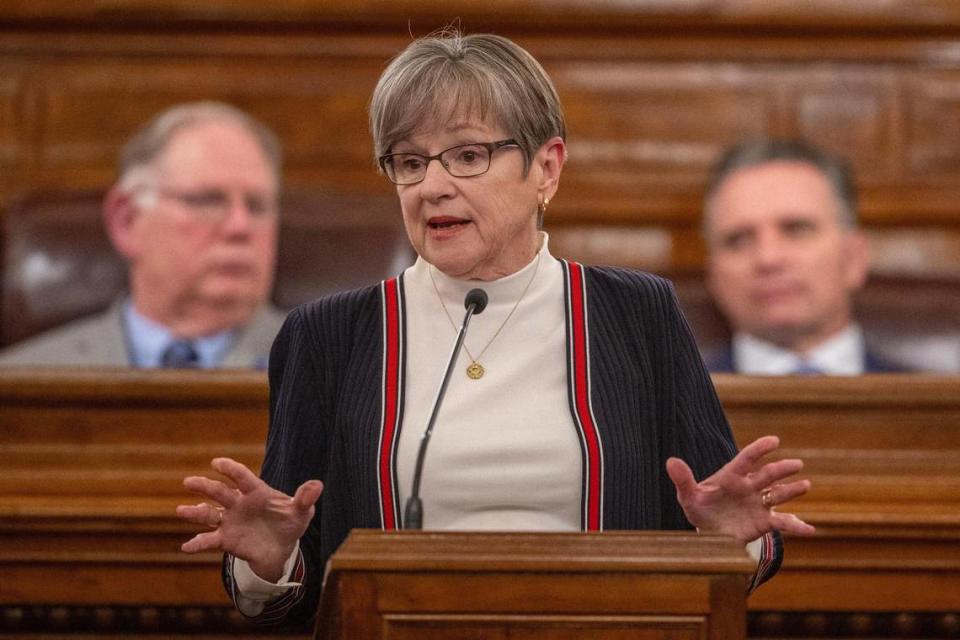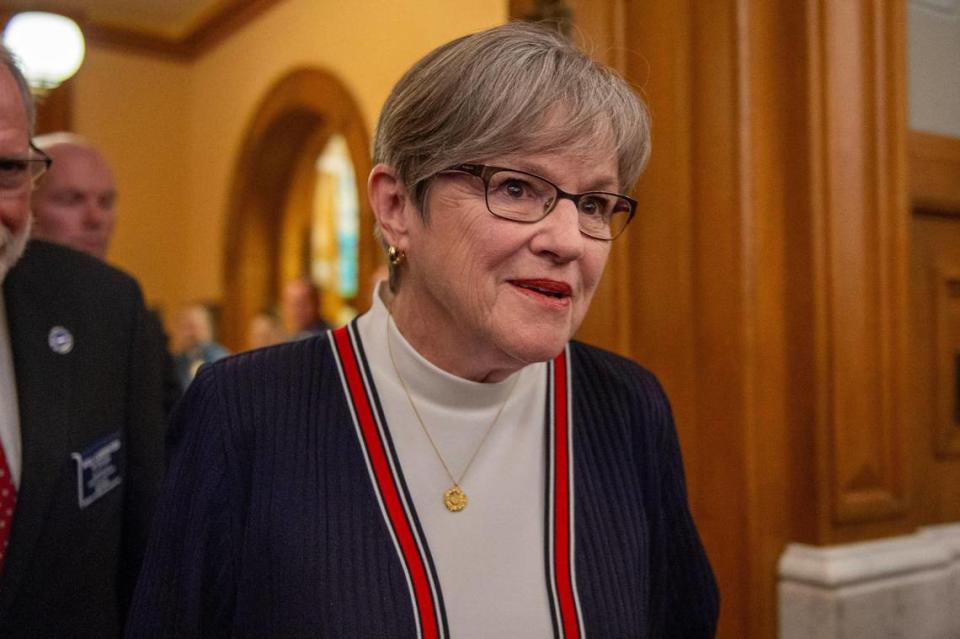Kansas Gov. Laura Kelly proposes $56M for child care amid statewide ‘capacity shortfall’
- Oops!Something went wrong.Please try again later.
Kansas Gov. Laura Kelly proposed more than $56 million in new spending on child care and early childhood education in her budget plan on Thursday as parents across the state grapple with shortages.
The Democratic governor promised during her reelection campaign that she would be the “child care governor” and her plans were met with tentative support within the Republican-controlled Legislature, which will decide whether to approve the new spending.
The funding is aimed at opening new child care slots, protecting existing child care providers and enhancing the coordination of child care operations across the state. The goal, Kelly’s budget director Adam Proffit said, is to address the shortfall in child care slots Kansas has faced for years.
The state needs more than 84,000 new child care slots to fill the existing demand, according to Child Care Aware of Kansas. As a result, families struggle to find adequate and affordable care for their children, and some parents have left the workforce.
“There’s a capacity shortfall in Kansas and as we all know child care issues are work force issues in Kansas. If parents can’t find child care for their kids, it’s going to be difficult to go to work,” Proffitt told lawmakers during a briefing on Thursday.
The early childhood funding was a significant component of Kelly’s $2.7 billion budget that also called for Medicaid expansion, substantial increases in special education funding and pay increases for state workers.
Republican lawmakers appeared open to the new child care spending, though some cautioned they want to see more information.
“Obviously, it’s something that we need to address in regards to economic development throughout the entire state of Kansas,” said Rep. Troy Waymaster, a Bunker Hill Republican and chair of the House Appropriations Committee. “Because we do have child care deserts across the state of Kansas.”
Sen. Rick Billinger, a Goodland Republican who chairs the Senate Ways and Means Committee, said he understood the importance of child care but would reserve judgment on the spending until after he saw details.
“I think child care is something we all need to work at,” Billinger said. “But I’m not sure how much the state can do.”
To begin to fill the child care demand, Kelly is proposing $30 million in public-private match grants for child care providers looking to open new slots in the state and $15 million to help existing providers keep their doors open. Another $5 million is reserved for a pilot project in northwest Kansas.
Kelly’s tax plan, which she announced on Monday and highlighted in her budget and Wednesday’s address, also doubled the size of Kansas’ child care tax credit helping parents recoup more of the money they spend on child care.
In addition to funding Kelly wants to establish an Office of Early Childhood.
Kelly began talking about the possible office on the campaign trail in 2022 and a task force she convened to study early childhood education recommended a coordinated office last year. The governor has framed the effort as a way to streamline the child care system for providers and families.
“Right now, if a daycare center wants to set up shop, it must work with one state agency to get licensed, another to receive workforce support, and a third to get funding. There are too many barriers, too many portals, too much hassle. We need to fix it,” Kelly said during the State of the State address.
Proffitt told reporters it was unclear at this point what the establishment of the office would cost and that most of the costs would not come during the next fiscal year. Republican leaders voiced skepticism of the idea, dismissing it as an effort to grow government rather than get out of the way.
“We truly believe that we should be being efficient and not adding a brand new bureaucracy,” House Speaker Dan Hawkins, a Wichita Republican, told reporters on Wednesday.
“I see it as just bloating government. It’s not really going to solve that problem.”
In addition to investing in early childhood education, Kelly’s budget also sought to increase the state’s special education budget by more than $374 million over the next five years. For more than a decade Kansas lawmakers have missed special education funding levels required by state law, Kelly’s proposal would bring the state up to the required funding level but is likely to face pushback from GOP lawmakers.
She also sought a 5% pay increase for every state worker alongside a $15 per hour minimum hourly salary and broader pay increases for workers in Kansas’ prisons and state hospitals.


